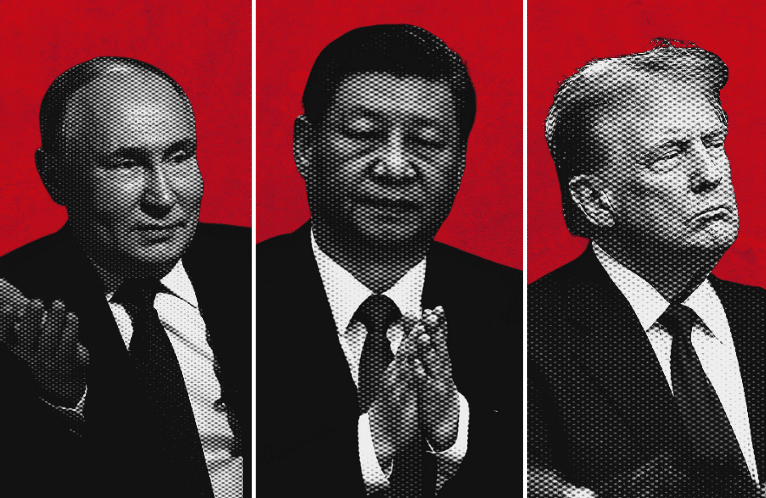Bob Corker: Impose Sanctions on North Korea’s Enablers
Following a visit to China, South Korea and Japan three years ago, I argued it was long past time for the United States to get serious about the North Korea threat and China’s continued support for the Kim Jong Un regime.
Yet here we are in 2016, on the heels of a missile launch and North Korea’s fourth nuclear test — a test that may well represent a significant technological advancement of North Korea’s nuclear program — and there is no sense of urgency or substantive change in U.S. policy.
This week the U.S. Senate will join the U.S. House of Representatives in passing legislation that sends a strong bipartisan message: North Korea is a serious threat to U.S. national security and our current approach is a failure.
The North Korea Sanctions and Policy Enhancement Act of 2016, which we expect to become law in the coming weeks, will provide the executive branch with a more robust set of policy tools to confront the threat posed by the rogue regime in Pyongyang. And while there is no “silver bullet” solution to the North Korea policy challenge, the United States must undertake a more proactive approach toward North Korea to address its nuclear and ballistic missile programs and human rights abuses against its own people.
The Senate bill represents the best of our bipartisan foreign policy tradition and builds upon legislation passed in the House of Representatives to expand and tighten enforcement of sanctions for North Korea’s destructive activities.
The bill requires the Obama administration to investigate sanctionable conduct. This means working to expose those involved in supporting North Korea’s human rights abuses, proliferation of weapons of mass destruction, and activities undermining cybersecurity — marking the first statutory framework for sanctions in response to the growing North Korean cyberthreat.
Importantly, it also targets for investigation those who back these activities through other means, such as providing the regime with industrial inputs such as coal, or luxury goods that serve as a valuable source of hard currency to fund North Korea’s nefarious activities. The President then is mandated to sanction any person found to have materially contributed to, engaged in or helped to facilitate these actions.
The bill also goes beyond the punitive sanctions stick and recognizes the need for a comprehensive policy toolbox. These instruments include improving enforcement of multilateral sanctions, an overall strategy — beyond sanctions — to combat North Korean cyberactivities, and other efforts to address more forcefully the horrific human rights situation, especially forced labor and repatriation.
Equally important is the message the U.S. Congress conveys to the international community by passing this bill: Support for the North Korean regime will have significant consequences.
And it is a message that we hope will be heard around the world, including in China, as we seek to harness greater cooperation on North Korea.
On a recent visit to Beijing, U.S. Secretary of State John Kerry emphasized that the United States and China share the same goal — denuclearization of the Korean Peninsula. But Kerry also noted that agreeing on the same goal is not enough, as “we need to agree on the meaningful steps necessary to get to the achievement of the goal.” And one such step would be strong support from China, North Korea’s largest patron, for a robust new resolution at the United Nations to impede North Korea’s continued nuclear and ballistic missile advancements.
Some North Korea watchers assert that Beijing doesn’t have the leverage that many U.S. officials contend it has over Pyongyang’s behavior. But that’s simply not true.
Although economic data on North Korea is scarce, the South Korean Trade-Investment Promotion Agency reports that 90% of all North Korean trade in 2014 was with China. There’s simply no excuse for turning a blind eye to the illicit activities of Chinese individuals and entities, including continuing to shield China’s most notorious proliferator, Karl Lee.
What is true, however, is that at present China lacks the political will to stand with the international community against North Korea’s dangerous, destabilizing activities.
Of course North Korea involves difficult choices for China, as it does for the United States and others, but being a responsible member of the international community necessitates making such difficult choices. I have always supported healthy engagement with China, particularly efforts to strengthen economic ties for the mutual benefit of our two countries. And I still do. But I’m disappointed with Beijing’s lack of leadership on North Korea and its continued disregard for international norms, including its provocative behavior in the East and South China Seas.
A clear attitude change in Beijing on North Korea would go a long way toward assuaging genuine concerns about Chinese intentions elsewhere.
The time has arrived for the United States to take the initiative and demonstrate leadership on North Korea that has been lacking through successive Republican and Democratic administrations. While one piece of legislation cannot fix years of ineffective policy, I believe Congress will soon take a strong step in the right direction.
By BOB CORKER Feb. 7, 2016 on CNN.
Read more here








